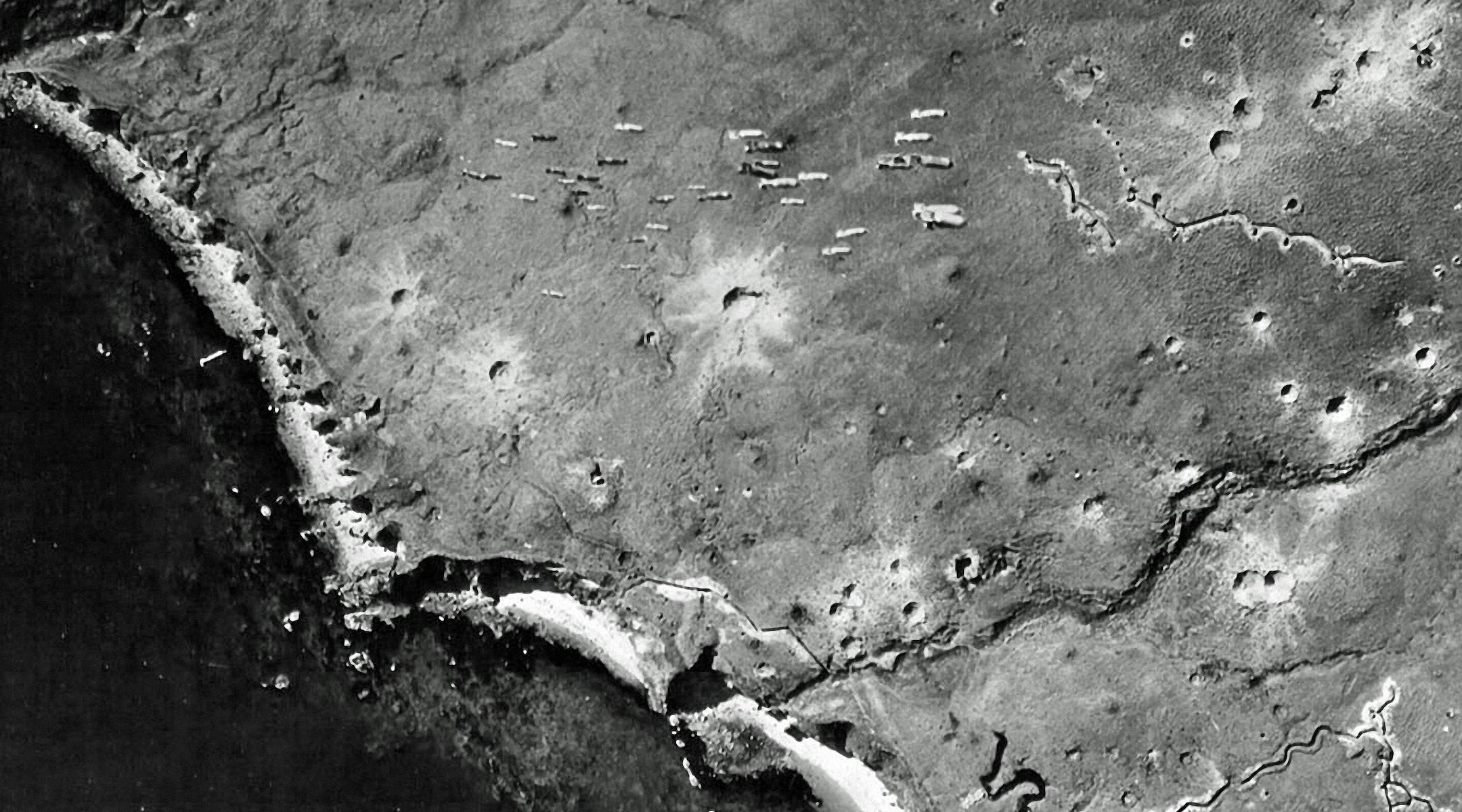Alaska’s Nazi Creek renamed after 80 years, following advocacy by son of WWII veteran
A synagogue in Anchorage, roughly 1,200 miles away, endorsed the move

Dozens of bombs fall from a U.S. bomber toward Japanese-occupied Kiska Island, Aleutian Islands on August 10, 1943. (Galerie Bilderwelt/Getty Images)
(JTA) — A little-known creek in the Aleutian Islands in Alaska had been officially named “Nazi Creek” for 80 years — until this week.
Following a campaign by a local advocate, the creek was given a new name in the language of the local Indigenous people, in a move supported by an Anchorage synagogue.
The one-mile creek, located on a largely uninhabited island, had been given its name during World War II after the Americans recaptured Kiska Island from the Japanese military, following an occupation that lasted a little over a year.
The name was “arbitrarily applied to features in this area” by the United States Army Air Forces, according to an entry in the Dictionary of Alaska Place Names, and appeared on an Army map in 1953. The name was chosen to correspond with the “N” square in a grid the U.S. military had imposed on the area, according to the New York Times.
The campaign to change the name of the creek began almost two years ago when Michael Livingston, a former police captain and member of the Qawalangin Tribe of Unalaska, discovered it.
“My dad served with the U.S. Army during World War II and there were so many losses to the Nazis — particularly for Jewish people, but also the Unangax̂ people,” Livingston told SFGate. “I knew this shouldn’t be there, that something needed to be done.”
Until Thursday, when it was officially renamed by the Domestic Names Committee of the U.S. Board on Geographic Names in a 17-0 vote, Nazi Creek was the only geographic feature in the United States with “Nazi” in its name.
The creek was renamed Kaxchim Chiĝanaa, meaning “gizzard creek” or “creek or river belonging to gizzard island” in Unangam Tunuu, the language of the Indigenous Unangax̂ people.
During the vote Thursday, the board also voted to change the name of nearby “Nip Hill,” an anti-Japanese reference, to a phrase that means “gizzard hill.”
The name changes were endorsed by local Native tribes and organizations as well as Congregation Beth Sholom of Anchorage, a synagogue with around 140 member families located in Alaska’s largest city, just under 1,200 miles from the former Nazi Creek.
“We are thrilled for the name change!,” said Rabbi Abram Goodstein of Congregation Beth Sholom by email.
The renaming follows a string of other World War II-inspired place names that have drawn renaming bids in recent years — to mixed results. In 2017, residents of a town in Canada decided not to rename a street named “Swastika Trail” after B’nai Brith Canada, a Jewish advocacy group, opened an online petition campaigning for it to be changed. In 2023, an Oregon mountain named “Swastika Mountain” was renamed “Mount Halo” in honor of a historical tribal leader following pressure from a local resident.














